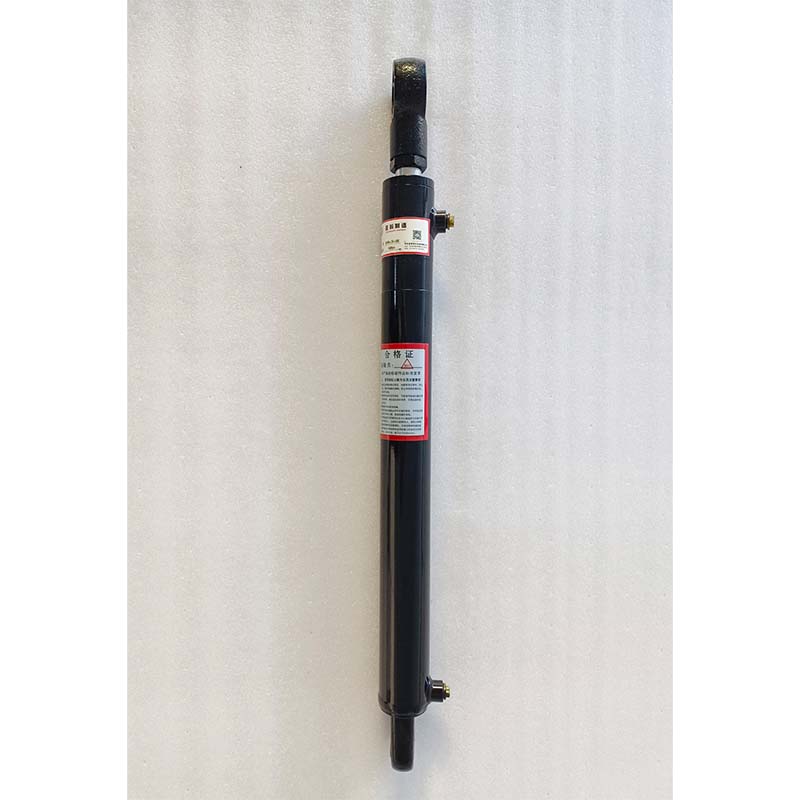Nov . 23, 2024 01:47 Back to list
cylinder in hydraulic system product
Understanding the Role of Cylinders in Hydraulic Systems
Hydraulic systems are vital components in various industrial applications, ranging from manufacturing to construction. At the heart of these systems, hydraulic cylinders play a crucial role in converting hydraulic energy into mechanical work. As indispensable elements, they not only enhance efficiency but also offer precision in operations across multiple sectors.
What are Hydraulic Cylinders?
Hydraulic cylinders are mechanical devices that utilize hydraulic fluid to generate linear motion and force. By employing Pascal’s principle, these cylinders operate by transmitting pressure through a confined fluid. When hydraulic fluid is pumped into the cylinder, the fluid pressure pushes a piston forward, resulting in linear movement. This simple yet effective mechanism allows hydraulic systems to perform tasks that require significant force while maintaining control and precision.
Components of Hydraulic Cylinders
A typical hydraulic cylinder consists of several key components
1. Cylinder Barrel This is the main body of the cylinder, housing the piston and the hydraulic fluid. 2. Piston The piston moves within the cylinder barrel and is responsible for transferring the hydraulic pressure into mechanical force.
3. End Caps These are located at both ends of the cylinder barrel, sealing the hydraulic fluid inside and providing mounting points for the cylinder.
4. Rod Attached to the piston, the rod extends out of the cylinder to transmit the generated force to the external environment.
5. Seals Sealing elements prevent hydraulic fluid from leaking out and dirt from entering the cylinder, ensuring reliable operation.
6. Ports These are openings through which hydraulic fluid enters and exits the cylinder, allowing the system to control the piston’s movement.
Types of Hydraulic Cylinders
There are various types of hydraulic cylinders, each designed for specific applications
1. Double-Acting Cylinders These cylinders can facilitate motion in both directions, allowing for versatile applications. They are widely used in industrial machinery where controlled movement is essential.
2. Single-Acting Cylinders Operating in only one direction, these cylinders utilize a spring return mechanism. They are commonly found in applications requiring less frequent reversing of motion.
3. Telescoping Cylinders Featuring multiple stages, these cylinders can extend significantly with limited space. They are ideal for applications such as dump trucks and material handling equipment.
cylinder in hydraulic system product

4. Rotary Actuators While primarily used for rotary motion, these devices can also function like hydraulic cylinders, converting fluid pressure into rotational movement.
Applications of Hydraulic Cylinders
Hydraulic cylinders are employed in a multitude of applications across various industries
- Construction Equipment Hydraulic cylinders are essential in excavators, forklifts, and bulldozers, providing the necessary force to lift heavy loads and manipulate equipment.
- Manufacturing In assembly lines, hydraulic cylinders help in precise movements of tools and fixtures, improving productivity and safety.
- Automotive Industry Hydraulic systems are integral to the operation of car lifts and hydraulic brakes, ensuring effective performance and control.
- Aerospace Hydraulic systems in aircraft are crucial for operating landing gear, flaps, and control surfaces, ensuring safety and functionality.
Advantages of Hydraulic Cylinders
The utilization of hydraulic cylinders presents numerous advantages
- High Force Output Hydraulic cylinders can generate substantial forces, making them suitable for heavy-duty applications.
- Precise Control Their ability to provide uniform force makes them ideal for tasks requiring precision and repeatability.
- Compact Design Hydraulic cylinders can produce significant force without requiring large and heavy components, which is essential for space-constrained environments.
- Durability and Longevity Made from robust materials and built to endure intense pressure, hydraulic cylinders often have long service lives with proper maintenance.
Conclusion
In summary, hydraulic cylinders are fundamental components of hydraulic systems. Their ability to convert hydraulic energy into mechanical force efficiently and precisely underpins many modern industrial processes. As technology continues to evolve, advancements in materials and design will further enhance the performance and applicability of hydraulic cylinders, solidifying their role in shaping the future of automation and machinery. Whether in construction, manufacturing, or automotive applications, the importance of hydraulic cylinders cannot be overstated, making them a topic worthy of understanding and appreciation.
-
Fork Lift Power Units - Hebei Shenghan | Efficiency, Reliability
NewsJul.13,2025
-
1.5-Ton Turbocharged Cylinder-Hebei Shenghan|Hydraulic Solution,Energy Efficiency
NewsJul.13,2025
-
Auto Hoist Power Units-Hebei Shenghan|Efficiency&Industrial Lifting
NewsJul.13,2025
-
Double Acting Power Units-Hebei Shenghan|Hydraulic Solutions,Industrial Efficiency
NewsJul.13,2025
-
1.5 Ton Lifting Cylinder 70/82-40-290-535 - High-Performance Hydraulic Solution | Hebei Shenghan
NewsJul.13,2025
-
Fork Lift Power Units - Hebei Shenghan | Efficiency&Reliability
NewsJul.13,2025
